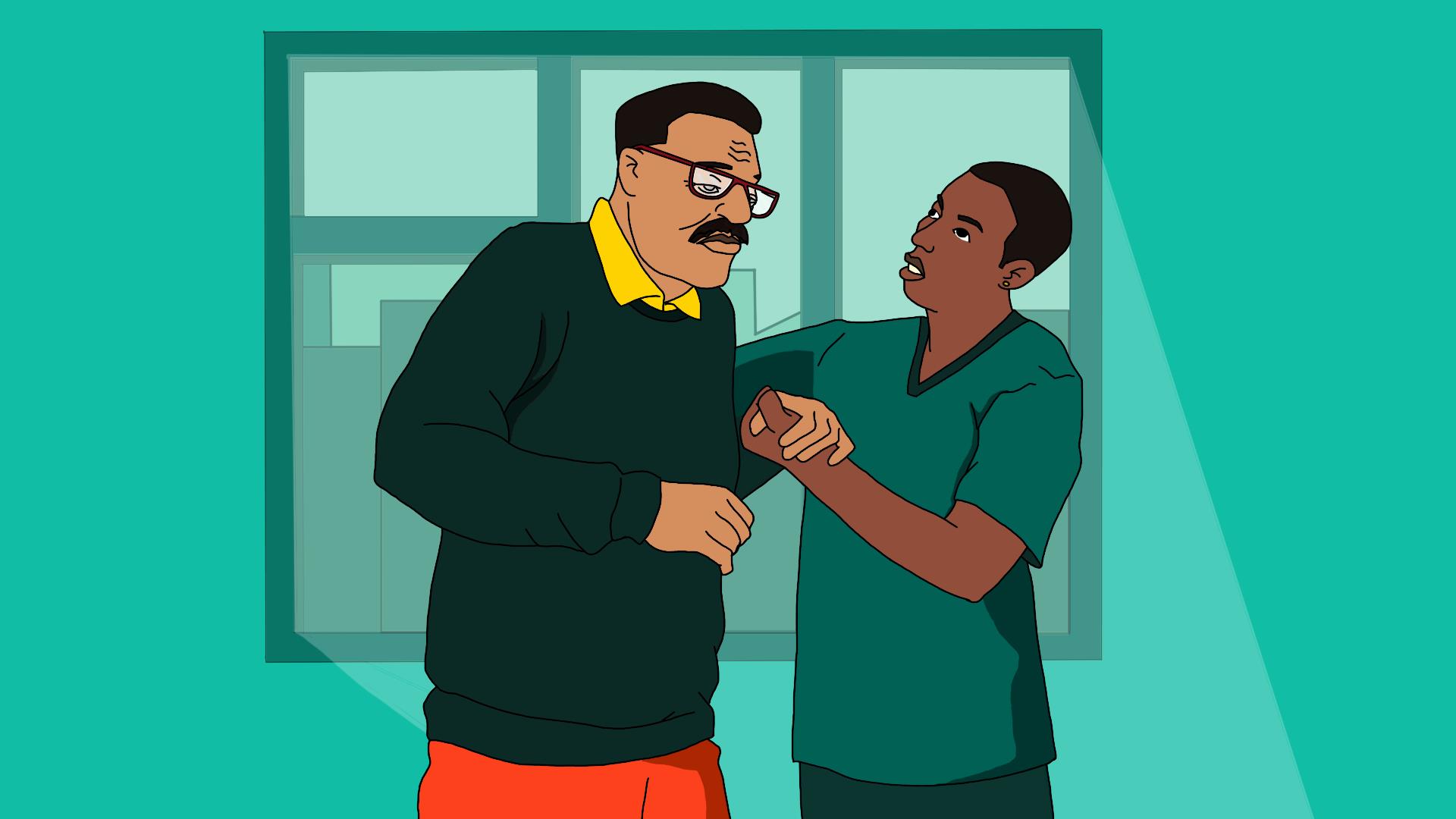🎧 Listen to: Parkinson’s Disease

Parkinson’s Disease
What is Parkinson’s disease?
Parkinson’s disease is a brain disorder that affects movement. It develops slowly and gets worse over time. In Africa, many people mistake it for normal aging or spiritual causes, leading to delayed treatment.
How common is Parkinson’s disease in Africa?
Parkinson’s disease affects millions worldwide, but in Africa, awareness is low. Studies estimate that over 500,000 people in Sub-Saharan Africa may have the disease, but many cases go undiagnosed. Due to poor access to healthcare, most people seek medical help only when symptoms become severe.
What causes Parkinson’s disease?
The exact cause is unknown, but experts believe it results from a combination of genetic and environmental factors. Some risk factors include:
- Age: Most cases occur after age 50, but younger people can also be affected.
- Gender: Men are more likely to develop Parkinson’s than women.
- Family history: If a close relative has Parkinson’s, the chances of developing it are higher.
- Exposure to toxins: Pesticides and chemicals used in farming and industry may increase risk.
- Head injuries: Severe or repeated head injuries may be linked to Parkinson’s.
Common myths about Parkinson’s disease?
- Myth: Only old people get Parkinson’s.
- Fact: While it mostly affects older people, some cases occur in people under 40.
- Myth: It is caused by witchcraft.
- Fact: Parkinson’s is a medical condition, not a spiritual attack.
- Myth: Parkinson’s cannot be treated.
- Fact: While there is no cure, treatment can help manage symptoms.
Symptoms of Parkinson’s disease?
Parkinson’s symptoms start mild and worsen over time. They include:
Early signs:
- Loss of sense of smell
- Constipation
- Small, cramped handwriting
- Soft or muffled voice
- Slight changes in posture
Main movement problems:
- Tremor: Uncontrollable shaking, usually in the hands.
- Slow movement (bradykinesia): Delayed physical response or difficulty starting movement.
- Stiffness: Rigid arms, legs, and body.
- Balance issues: Increased risk of falls.
Other symptoms:
- Reduced blinking and facial expressions
- Trouble swallowing and speaking
- Sleep disturbances, such as vivid dreams or talking in sleep
- Dry, flaky skin (seborrheic dermatitis)
- Increased risk of skin cancer (melanoma)
How is Parkinson’s diagnosed?
There is no single test for Parkinson’s. Diagnosis is based on:
- Medical history: The doctor asks about symptoms and family history.
- Physical and neurological exam: Checking movements, balance, and reflexes.
- Imaging tests: MRI or CT scans may be used to rule out other conditions.
Treatment for Parkinson’s disease?
While Parkinson’s has no cure, treatment helps manage symptoms and improve quality of life. Options include:
Lifestyle changes:
- Regular exercise to improve balance and strength.
- Healthy diet to support brain function.
- Adequate rest and stress management.
Medication:
- Levodopa (with carbidopa): The most effective drug, helping to replace lost dopamine.
- Dopamine agonists: Mimic dopamine effects (e.g., bromocriptine, pramipexole).
- Anticholinergics: Reduce muscle stiffness and tremors.
- Amantadine: Helps with movement issues caused by medication side effects.
Therapy:
- Speech therapy: Helps with voice and swallowing difficulties.
- Physical therapy: Improves movement and reduces falls.
- Occupational therapy: Assists with daily tasks.
Surgery (for severe cases):
- Deep brain stimulation (DBS): A device is implanted in the brain to control movement.
- Pump therapy: Delivers medication directly into the body to manage symptoms.
Final thoughts: Why awareness is important? In Africa, many people with Parkinson’s do not receive proper care due to low awareness and stigma. Early detection and treatment can improve quality of life. If you or a loved one notice symptoms, seek medical advice early.
